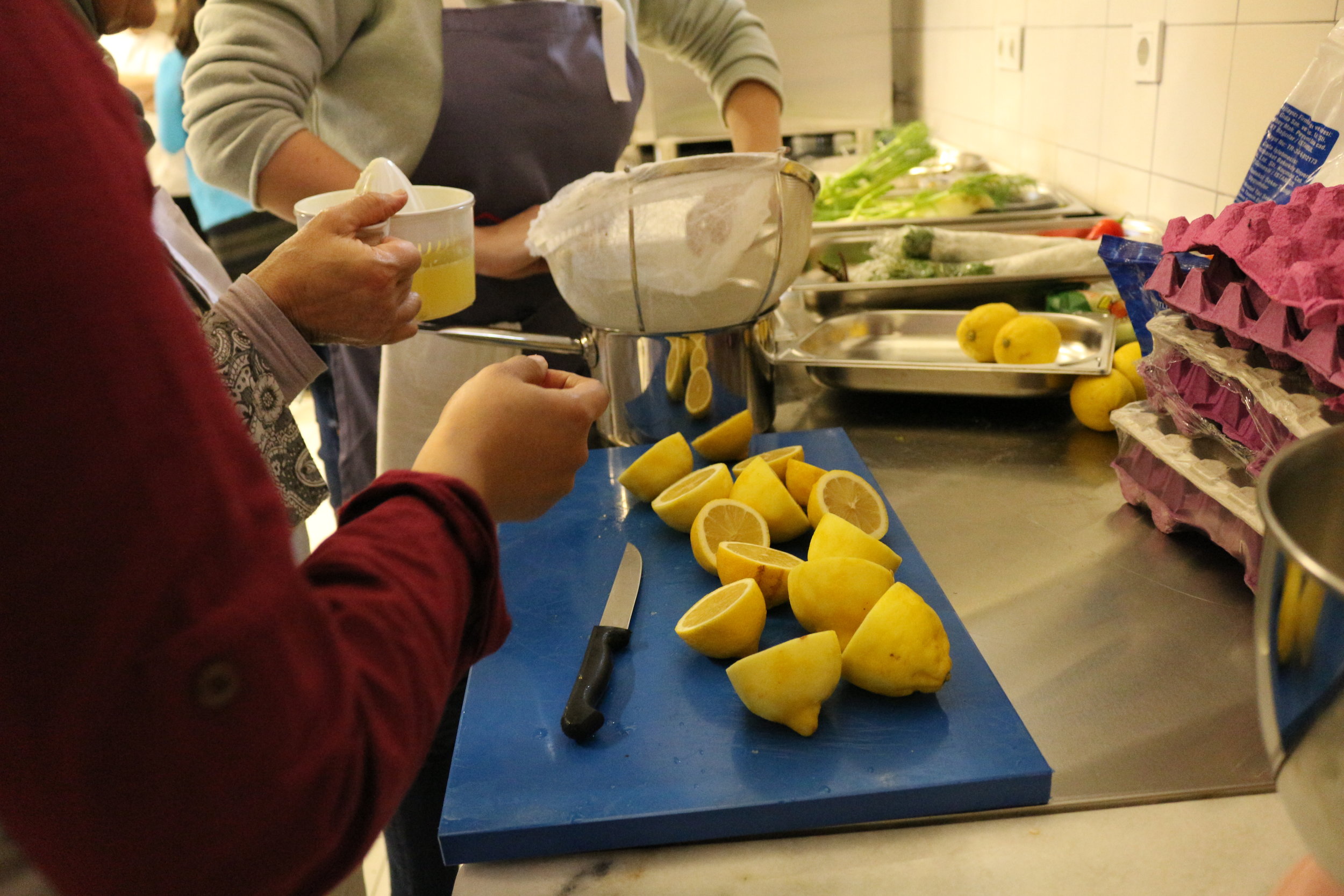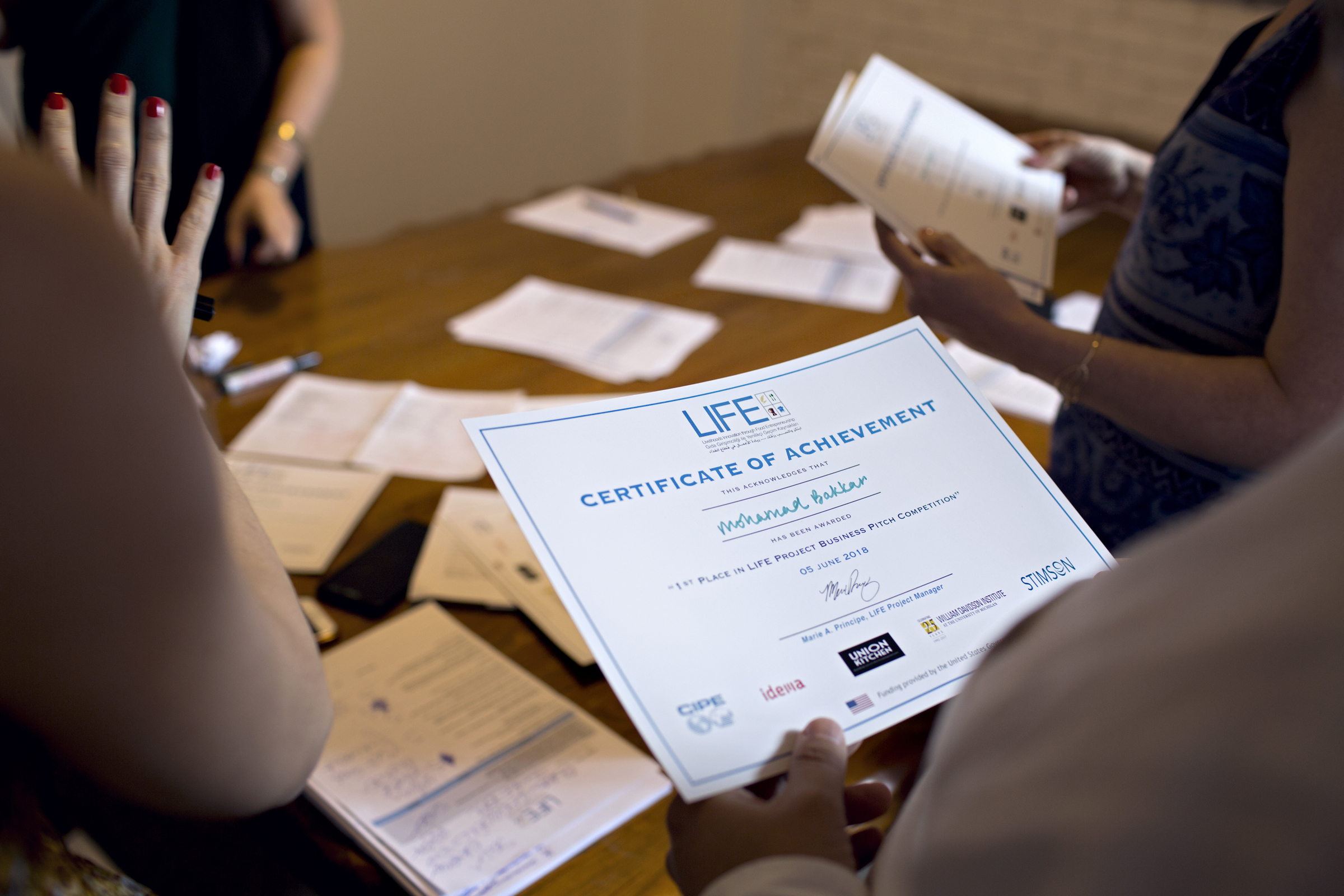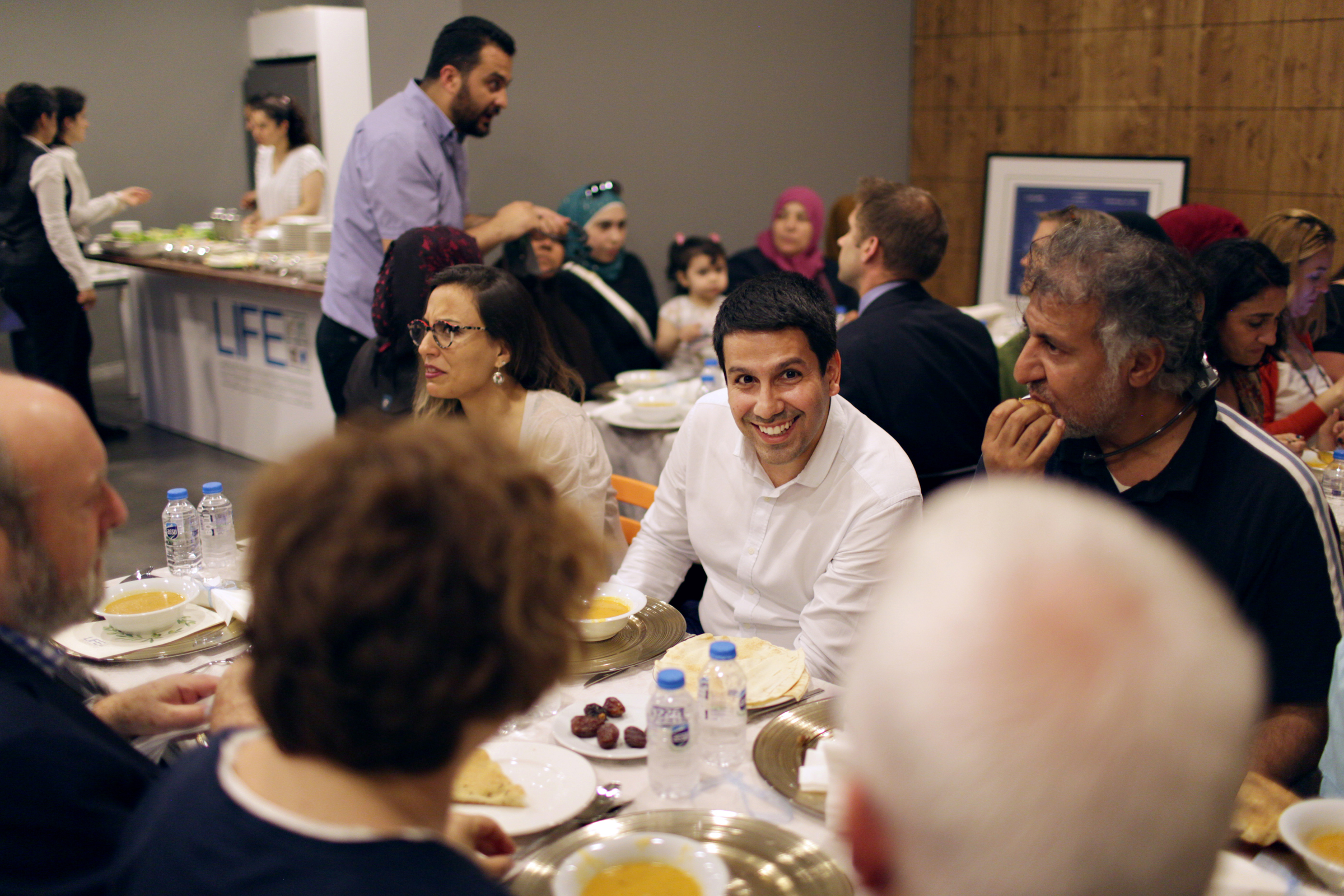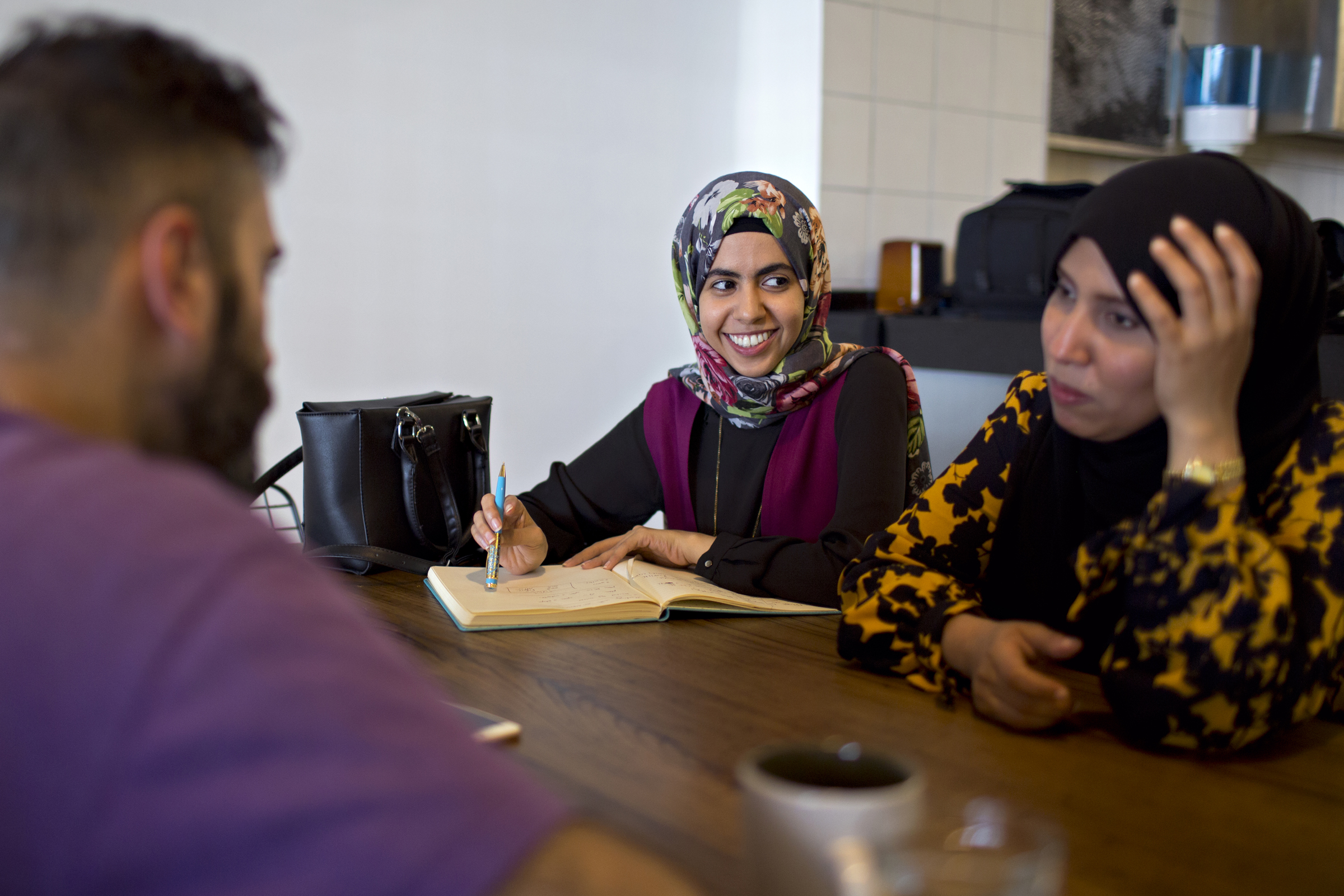In 2018, the LIFE Project built creative solutions to challenges facing refugees and their host communities using an interest everyone shares: food. LIFE Project programming created a space for Turkish and refugee food entrepreneurs to build sustainable livelihoods and develop social and economic ties in their communities.
Over the last year, the LIFE Project welcomed the first three cohorts of entrepreneurs in the food incubation program in Istanbul and extended the reach of the project to the wider business community through gastrodiplomacy. LIFE entrepreneurs used the knowledge gained through the program and seed funding from pitch competitions to launch successful food businesses and create jobs in their communities. And of course, members produced countless delicious recipes to be included in our cookbook, to be published in 2019.
Danielle Villasana
Highlights
250 food entrepreneurs applied to the LIFE Project incubation program in Istanbul, with 111 accepted and 80 graduated
$24,000 in seed funding was awarded to over a dozen entrepreneurs through the LIFE Project business pitch competition
Over 300 food sector workers participated in workforce training programs
Over a dozen specialized and technical training workshops, on topics ranging from culinary techniques to market access, were offered in response to member requests
Four gastrodiplomacy events were held at the Istanbul Food Enterprise Center (FEC)
Four distinct lines of business support services were offered to LIFE Project entrepreneurs: business registration and legal support; access to finance and business development; start-up logistics and accounting; and culinary technique training
Driving Entrepreneurship
The LIFE Project opened new sustainable livelihood opportunities for refugees and their host communities by directly supporting entrepreneurs. We developed a unique entrepreneurship curriculum to better equip members with the necessary skills to start a business in the food industry, with a focus on the challenges and opportunities they will face in the Turkish market. In 2018, the LIFE Food Enterprise Center (FEC) in Istanbul presented this curriculum to three diverse cohorts of food entrepreneurs from Turkey, Syria, and other countries in the region.
The LIFE Project
LIFE Project entrepreneurs put this curriculum into practice in the new Food Enterprise Center (FEC) in Istanbul, where members developed their business idea by using the meeting and co-working spaces and could test their products in a commercial-grade kitchen. The FEC provided space for over a dozen specialized workshops requested by members to build skills in culinary techniques and specific cuisines.
In addition to hands-on training in entrepreneurship and the food industry, members also accessed the business support services provided, received legal and accounting support from experts, and met with mentors to develop their business idea and navigate challenges. The Istanbul FEC also provided workforce development programming for local food sector workers to acquire skills to better equip them in the food industry, namely in customer service and a Ministry of National Education certified food sanitation course.
Danielle Villasana
In 2018, the LIFE Project hosted two pitch competitions to give the entrepreneurs an opportunity to receive seed funding for their businesses. In the first competition in June, five refugee entrepreneurs and two Turkish entrepreneurs received awards for their business idea. In the second, three Syrian entrepreneurs and one Yemeni won seed funding for theirs.
Many of the winners have successfully launched their businesses. One winner, Fatma, is now selling her baked goods in a local coffee shop. Another, Nahed, recently registered her home-cooked food business and hired two part-time employees, one Syrian and one Turkish.
Fostering Social Cohesion through Gastrodiplomacy
In addition to supporting food business development and entrepreneurship, the LIFE Project used the common interest of food to connect members with the wider community through gastrodiplomacy events. While the entire project is an exercise in gastrodiplomacy, these events in particular highlighted members’ experiences and engaged outside community members in the LIFE Project. Local business and startup owners, NGO representatives, and diplomatic personnel were among the attendees at the four structured gastrodiplomacy events held this year.
Danielle Villasana
Cohort members also represented the LIFE Project beyond these gastrodiplomacy events. In July, members were invited to prepare dishes for guests at the Independence Day celebration at the U.S. consulate in Istanbul. In October, two members prepared a dinner for Amb. James Jeffrey, U.S. Special Representative for Syria, and shared their experiences as LIFE entrepreneurs. The LIFE Project also engaged with participants at the UNDP Social Good Summit in Istanbul, during which entrepreneurs shared their stories - and recipes - at the LIFE booth.
Looking Ahead
In 2019, the LIFE Project will expand to build sustainable livelihoods for refugees and their host communities in Turkey. The Istanbul food incubator graduated the third cohort on January 22nd and welcome a new cohort in February, and a second incubator in Mersin will expand the reach of the entrepreneurship program. Mersin offers significant potential for food entrepreneurs among refugees and the wider community.. Syrians are now the largest foreign entrepreneur group: according to the Mersin Chamber of Commerce and Industry, 1,200 Syrian-owned companies were registered in the in the beginning of 2018. The Mersin FEC will create further opportunities for entrepreneurs from a wide range of cultural backgrounds.
Danielle Villasana
The LIFE Project will also continue to engage with refugee advocates and gastrodiplomacy leaders in Turkey and around the world through events and programming. Gastrodiplomacy events are planned in Istanbul and Turkey, and LIFE Project representatives will be featured at South by Southwest (SXSW) in March. Later this year, the LIFE Project will release a cookbook that will share LIFE entrepreneurs’ stories and their recipes from Turkey, Syria, Yemen, Iraq and others.
We are proud of the impact the LIFE Project had in its first full year of operation. LIFE entrepreneurs have built a community around food, and are using the skills and knowledge they gained to contribute their unique talents (and tastes) as active members of their communities. As the project enters 2019, we hope to see this impact spread.

.jpg)



